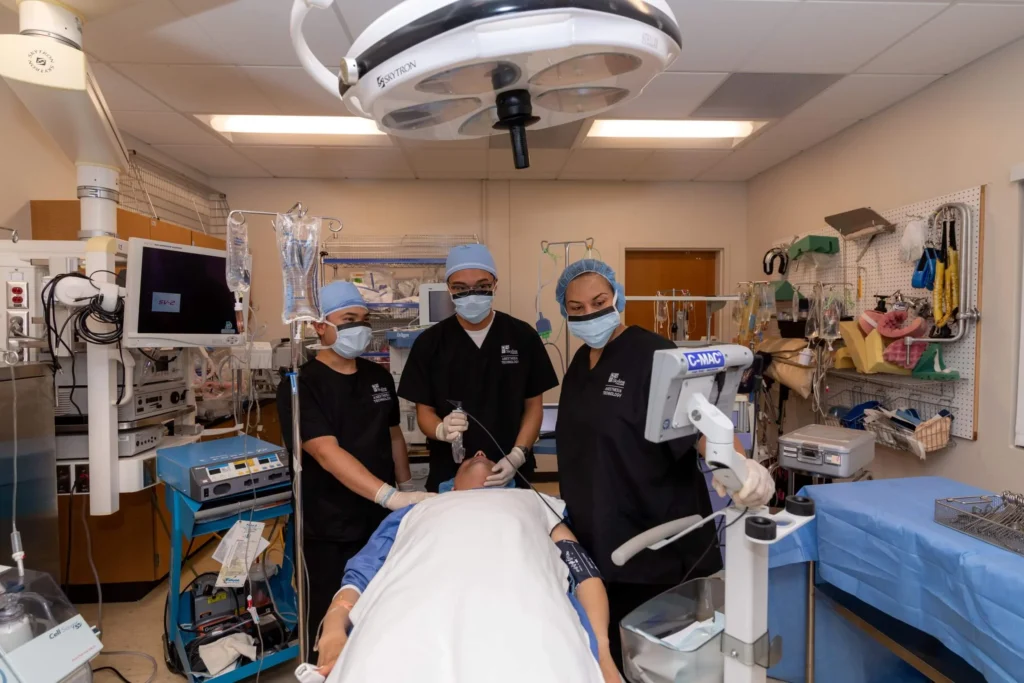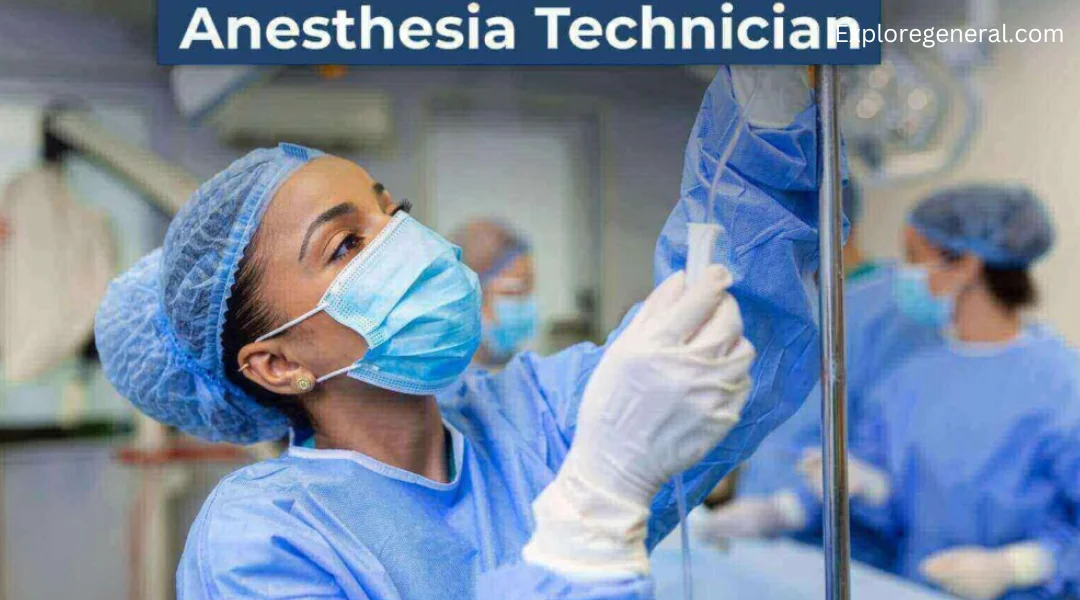Anesthesia technologists play a critical role in the healthcare system, working alongside anesthesiologists, surgeons, and other medical professionals to ensure patients undergo safe and effective anesthesia during medical procedures. With an expanding healthcare sector and an increasing demand for highly skilled medical support staff, anesthesia technologists are becoming an essential part of the medical team in hospitals, outpatient surgery centers, and other clinical settings.
One important aspect of this profession that often influences career decisions is salary. The salary of an anesthesia technologist varies based on several factors, including location, education, experience, and the specific healthcare institution they work for. In this article, we will explore the factors that influence the salary of anesthesia technologists, the typical earning potential in this field, and the career outlook for this growing profession.

If you want to know more about Tech Rod Exercise then checkout our last blog post.
What Is an Anesthesia Technologist?
An anesthesia technologist is a healthcare professional who supports anesthesiologists and other medical teams in the administration of anesthesia to patients. Their primary responsibilities include preparing, maintaining, and troubleshooting anesthesia equipment, ensuring the proper functioning of anesthesia machines, and assisting with the preparation and administration of anesthetic agents.
The role of an anesthesia technologist is multifaceted, requiring a combination of technical skills, medical knowledge, and attention to detail. Anesthesia technologists may also be involved in.
- Monitoring patients’ vital sign during surgery or medical procedures
- Maintaining sterile conditionsin operating rooms
- Assisting with airway management and respiratory support
- Sterilizing and managing anesthesia equipment
- Ensuring compliance with safety protocols
They work under the supervision of anesthesiologists and anesthesia nurse practitioners, contributing to the safety and comfort of patients undergoing anesthesia.
Factors Influencing the Salary of Anesthesia Technologists
The salary of an anesthesia technologist is influenced by a number of variables, including location, education, experience, certifications, and the type of healthcare institution. Here’s a deeper look at each of these factors.
1. Location
One of the most significant factors that influence salary is geographic location. The cost of living, demand for healthcare professionals, and regional healthcare budgets can all impact the earning potential of anesthesia technologists.
- High paying states. Some states, particularly those with large urban populations and a high demand for healthcare services, tend to offer higher salaries for anesthesia technologists. States like California, New York, and Texas often provide more competitive salaries due to a higher cost of living and a greater demand for healthcare services.
- Cost of living. In general, anesthesia technologists in metropolitan areas with higher costs of living can expect higher salaries than those in rural areas or smaller towns. However, in rural areas, the demand for specialized healthcare workers can lead to competitive compensation as well.
- Regional differences. According to data from the U.S. Bureau of Labor Statistics (BLS) and other compensation sources, the West Coast and Northeast tend to have higher wages compared to the South or Midwest regions.
2. Experience
As with most professions, the experience level of an anesthesia technologist significantly influences their salary. Entry level positions may offer lower pay, but as technologists gain more years of experience and expertise, their compensation increases.
- Entry level: An entry-level anesthesia technologist can expect to earn a salary at the lower end of the pay scale. In general, newly graduated anesthesia technologists with less than one year of experience can expect to earn between $40,000 and $50,000 annually.
- Mid caree. Technologists with 5 to 10 years of experience typically earn salaries in the range of $55,000 to $70,000 annually. With increased proficiency in equipment maintenance, patient monitoring, and emergency response, mid career anesthesia technologists become more valuable to employers.
- Experienced professionals. Technologists with more than 10 years of experience in the field can expect to earn salaries on the higher end of the scale, anywhere between $70,000 and $90,000 or more. Senior anesthesia technologists often take on supervisory roles or mentor newer employees, which can contribute to higher wages.
3. Education and Certification
Educational background and certifications can also impact salary. Anesthesia technologists typically need at least a high school diploma or GED, but most employers prefer candidates who have completed a certificate or associate degree program in anesthesia technology. Additionally, earning certifications from recognized professional organizations can increase salary potential.
- Degree Programs. Many anesthesia technologists have completed a two year associate degree in anesthesia technology or a related field. Programs typically include coursework in anatomy, physiology, pharmacology, and anesthesia equipment, combined with clinical training. These programs often improve a candidate’s employability and earning potential.
- Certification. Certification can have a positive impact on salary. The American Society of Anesthesia Technologists and Technicians (ASATT) offers certification through the Certified Anesthesia Technologist (Cer.A.T.) exam. Certified anesthesia technologists often command higher salaries due to the expertise and knowledge the certification demonstrates. Some employers may even offer financial incentives for obtaining certification.
- Specialized Certifications. Technologists who pursue advanced certifications or specialize in areas like cardiac anesthesia or pediatric anesthesia may be able to command higher salaries as well. These specialized skills are in demand and employers are willing to offer higher compensation for technologists with advanced knowledge.

If you want to know more about Tech Rod Exercise then checkout our last blog post.
4. Type of Healthcare Institution
The type of healthcare institution an anesthesia technologist works for also plays a role in their salary. Technologists working in high acuity hospitals, large medical centers, or surgical centers may earn higher salaries compared to those working in smaller clinics or outpatient facilities. Some factors influencing salary based on institution type include:
- Hospitals and large medical centers. Large, teaching hospitals or academic medical centers, especially in urban areas, tend to offer competitive salaries and benefits packages. These institutions often perform complex surgeries and medical procedures, requiring the expertise of highly skilled anesthesia technologists.
- Outpatient surgery centers. While outpatient surgery centers may offer more predictable working hours, they may offer lower salaries than large hospital systems due to their size and scope of services.
- Government institutions. Some anesthesia technologists work in government run healthcare facilities, such as those within the Veterans Administration (VA) system or military hospitals. These positions often come with benefits like pensions and more generous paid time off, but salaries can be lower compared to private sector roles.
5. Job Outlook and Demand
The demand for healthcare professionals, including anesthesia technologists, is growing. As the aging population increases and the demand for medical procedures rises, anesthesia technologists are likely to see continued job growth, which can positively impact salaries.
- High demand in surgery centers. As more outpatient surgery centers open to meet the demands of non emergency medical procedures, the need for anesthesia technologists in these facilities increases. This expanding market could lead to greater demand for anesthesia professionals, which in turn may drive up wages.
- Aging population. The increasing number of elderly patients undergoing surgery and medical treatments contributes to a steady demand for qualified anesthesia technologists. The baby boomer generation’s demand for healthcare services will likely sustain job growth and create opportunities for higher wages.
Anesthesia Technologists Salary. A Snapshot
Based on available data from the U.S. Bureau of Labor Statistics (BLS) and other reliable sources, here is an overview of the salary range for anesthesia technologists in the United States.
- Median annual salary. The median annual salary for an anesthesia technologist is approximately $60,000 to $70,000, depending on experience and geographic location.
- Starting salary. Entry level anesthesia technologists typically earn between $40,000 and $50,000 per year.
- Experienced professionals. With several years of experience, salaries can rise to between $70,000 and $90,000 annually.
- Top earners. Senior level anesthesia technologists with specialized certifications and experience may earn upwards of $100,000 or more per year in high demand areas.
Salaries can also be supplemented with benefits packages that include health insurance, retirement plans, paid time off, and performance bonuses.

If you want to know more about Tech Rod Exercise then checkout our last blog post.
Conclusion
Anesthesia technologists play an indispensable role in the medical field, contributing to the safety and comfort of patients undergoing anesthesia for a variety of procedures. The salary of an anesthesia technologist depends on several factors, including education, experience, location, and the healthcare institution where they work.
Overall, anesthesia technologists can expect a competitive salary, especially as they gain more experience and certification. With the growing demand for healthcare professionals and the increasing importance of specialized medical care, the profession of anesthesia technology is poised for continued growth and higher compensation in the coming years.
For those considering a career in this field, anesthesia technology offers a rewarding and well compensated career path with opportunities for advancement, specialization, and professional growth. As the healthcare sector expands and evolves, anesthesia technologists will continue to be integral to the safety and success of medical procedures, making their expertise highly valued.



Pingback: Tech Suits for 13 Year Old: A Comprehensive Guide to